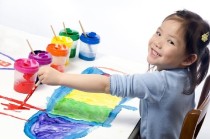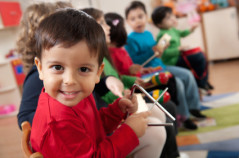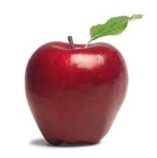
Kindergarten Readiness (Age 4 to 5)
Our Kindergarten Readiness program is offered for children ages 4 through 5 years of age preparing to enter the elementary system in the following school year. Each week a letter of the alphabet is selected and built into the curriculum. The letter of the week is integrated within all areas of learning including reading and writing, math, science, art, health and nutrition, social-emotional, and physical activities.
Kindergarten Readiness Curriculum Goals
Language and Literacy
- Develop the ability to sit still, look at the speaker, respond and wait for own conversation turn.
- Learn to follow simple directions.
- Learn to respond to language that is read to them with related comments or questions.
- Develop the ability to converse with adults and other children.
- Use language to describe events, make decisions and participate in classroom discussions.
- Continue to develop vocabulary and grammatical construction of own speech
- Develop an understanding that oral language can be written.
- Write/scribble messages.
- Begin to develop an understanding of the purposes of writing.
- Use letters to represent words.
- Use letters and pictures to convey ideas.
- Recognize and begin to write their name correctly.
- To recognize the letters of the alphabet and their corresponding sounds.
- To develop concepts about print in a book, as well as attach meaning to the print.
- Develop an awareness of sequence of events in stories.
- Begin to predict events in a story.
- Become aware for the roles of authors and illustrators.
- Recognize print within their environment.
- Develop an awareness of words that rhyme in a playful manner.
Math/Science
- Develop abilities to describe, match and sort objects by their attributes.
- Develop abilities to identify commonalties and differences among objects.
- Develop the ability to recognize that the same set of objects can be sorted and classified in more than one way.
- Develop the ability to rote count.
- Begin to develop one to one correspondence when counting objects.
- Begin to recognize numerals.
- Explore the concept of more or less.
- Have the opportunity to use standard units for measurement (cup, rulers, scales, clock, and calendar)
- Have the opportunity to use non-standard units for measurement (blocks, hands, cubes, etc.).
- Take part in activities designed to recognize, name, and describe geometric shapes.
- Develop curiosity about objects, organisms and events in the environment.
- Participate in simple investigations.
- To use their senses and simple equipment to gather and display data, graphs, tally marks, etc.
- Learn to be responsible for their personal health.
- Develop understanding of safety habits for school, home, and weather emergencies.
- Develop an awareness of safety symbols.
- Basic weather.
- Signs of the seasons and how they relate to weather.
- Plant and animal life cycles.
- Learn about senses.
- Learn about the movement of objects.
- Learn the names of colors.
Technology
- Use the mouse to navigate software programs.
- Become aware of the names of computer hardware.
Visual Art
- Explore the basic elements of art.
- Learn to use art materials in creative ways.
- Gain pleasure from a variety of art related sensory experiences.
- Begin to express ideas and feelings through art.
- To respect their own, as well as others' art work.
Dramatic Play
- Use their body to represent objects or events.
- Experiment with a variety of objects, roles and characterizations.
- Dramatize familiar stories, songs, poems, and past events.
- Develop the skills to create a play theme.
- Combine constructive and pretend play.
- Develop verbal skills in the context of dramatic play.
Social-Emotional Development
- Become aware of socially appropriate behaviors.
- Develop the ability to accept reasonable limits set by adults.
- Begin to practice cooperative behavior.
- Begin to develop empathy for other peers and adults.
- Become aware of own emotions and learn to express them constructively.
- To separate from parents with ease.
- Demonstrate appropriate trust in teachers.
- Show age-appropriate independence in caring for themselves and in meeting their own needs.
Physical Development
- Use whole body to strengthen muscle groups, (running, jumping, hopping, climbing, throwing, catching, and kicking).
- Participate in a variety of motor activities designed to enhance physical coordination, endurance, flexibility and agility.
- Develop awareness of body position in space.
- Begin to develop eye-hand coordination, finger, thumb, and whole hand coordination, strength, and endurance.
- Develop the ability to use writing tools and scissors.




